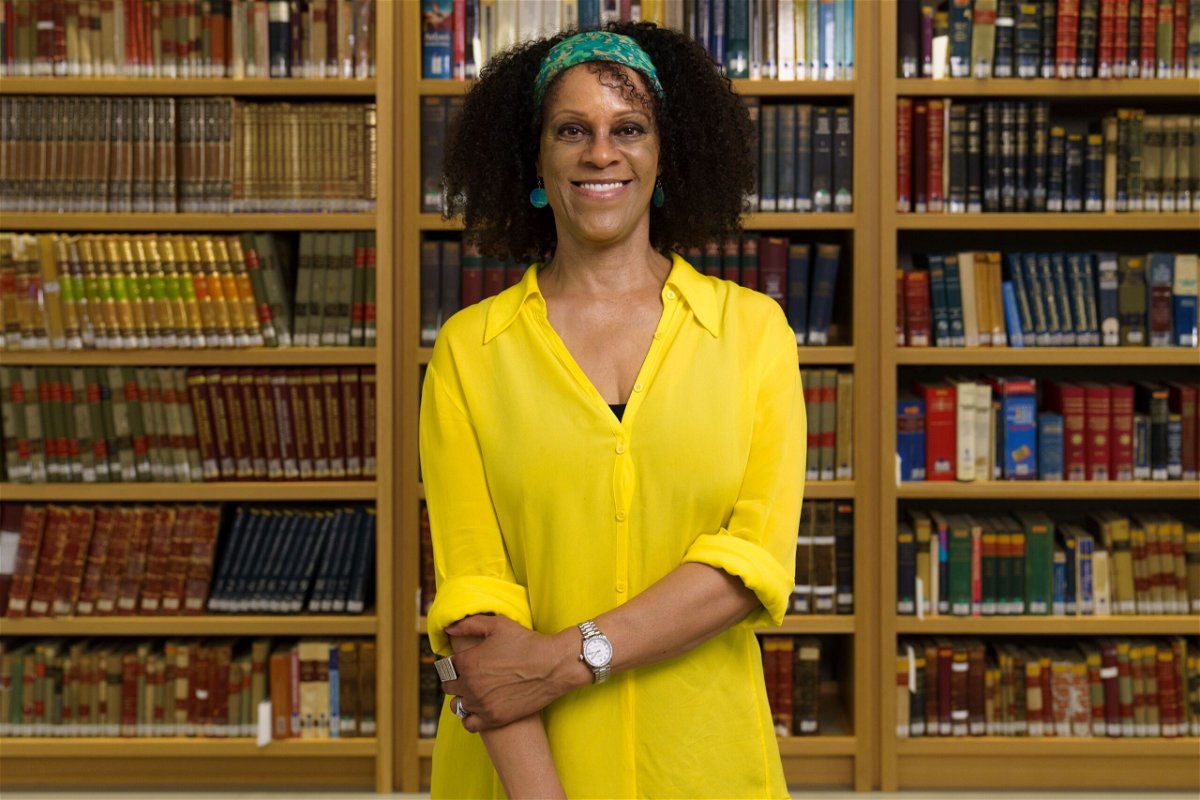Why Booker Prize-winning author Bernardine Evaristo is mentoring Ghanaian writer Ayesha Harruna Attah

Award-winning author Bernardine Evaristo is pictured here.
By Rochelle Beighton, CNN
(CNN) — In a literary landscape where narratives of Africa have long been overlooked or distorted, award-winning British author Bernardine Evaristo is supporting emerging voices from the continent.
With a career spanning four decades, Evaristo garnered international acclaim in 2019 as the first Black woman to win the Booker Prize, for her novel “Girl, Woman, Other.”
As part of this year’s Rolex Mentor and Protégé Arts Initiative, which nurtures artistic talent globally, she chose to mentor 39-year-old Ghanaian writer Ayesha Harruna Attah. “I wanted an African woman who lives on the continent because there are already so many opportunities for writers in Europe and America,” Evaristo told CNN in Athens, Greece, where she was attending last month’s Rolex Arts Festival.
Attah is based in Senegal and has published five books. Her novels, centered on African female narratives, resonated with Evaristo.
Born to a Nigerian father, Evaristo has deep ties to the continent and often explores themes related to the African diaspora in her work, embracing the complexities of identity, race, and gender.
Attah said that being selected personally by Evaristo “is an honor of a lifetime.”
“I was overjoyed because I love Bernardine’s boldness as a writer. She’s experimental, playful, and yet she’s talking about big issues,” Attah added.
Confidence and connections
As a professor of creative writing at Brunel University London, Evaristo is no stranger to mentorship and championing the next generation of writers.
In 2012, she launched the Brunel International African Poetry Prize, now renamed the Evaristo African Poetry Prize, with the aim of providing a platform for emerging poets from Africa and the diaspora.
For Evaristo, mentorship is about more than just refining writing skills. She acknowledges the importance of networking in the literary world, a challenge for writers residing outside major creative hubs like London or New York.
“We writers support each other face-to-face by going to events and book launches and hosting discussions. That’s something that has been missing from Ayesha’s writing career, and so part of my role is to bring that to her,” Evaristo said.
Six months into the mentorship initiative, they have been working on goal setting and confidence building. Together, they attended this year’s Bocas Lit Fest in Trinidad, where Attah connected with other writers and participated in forums.
“To have Bernardine say, ‘Don’t be afraid to dream of all the things you want to achieve,’ is affirming. It’s a push I need to get out of that cultural restraint that says, ‘stay in your corner,’” Attah said.
Fresh perspectives
Attah’s writing often intertwines historical contexts with personal narratives, shedding light on lesser-known aspects of African history.
In her second novel, 2015’s “Saturday’s Shadows,” Attah delved into the aftermath of political upheaval in postcolonial Ghana. The story follows a family as they navigate personal and societal challenges.
Her next book will explore the realms of history and mythology, transporting readers to a time preceding the Pharaohs.
“Growing up, I would read things about Greece or England, and I loved reading them, but I could never quite center myself in these stories,” Attah said.
“Africa has suffered from a PR problem,” she added. “We’ve been told for a long time that we didn’t have a history or a writing culture. I feel like my job is to start resetting some of these traits,” she said.
Both Evaristo and Attah share a commitment to challenging misconceptions and stereotypes surrounding Africa and its people through their work.
In “Blonde Roots,” Evaristo reimagines the transatlantic slave trade, shifting power dynamics by portraying Africans enslaving Europeans, prompting readers to reconsider their understanding of history.
“People have said to me, “Isn’t writing about Africa or Black people limiting?” Evaristo said. “Nobody would think of saying that of White people. Africa is a field of infinite possibilities, and I’m really excited by it.”
The-CNN-Wire
™ & © 2023 Cable News Network, Inc., a Warner Bros. Discovery Company. All rights reserved.
